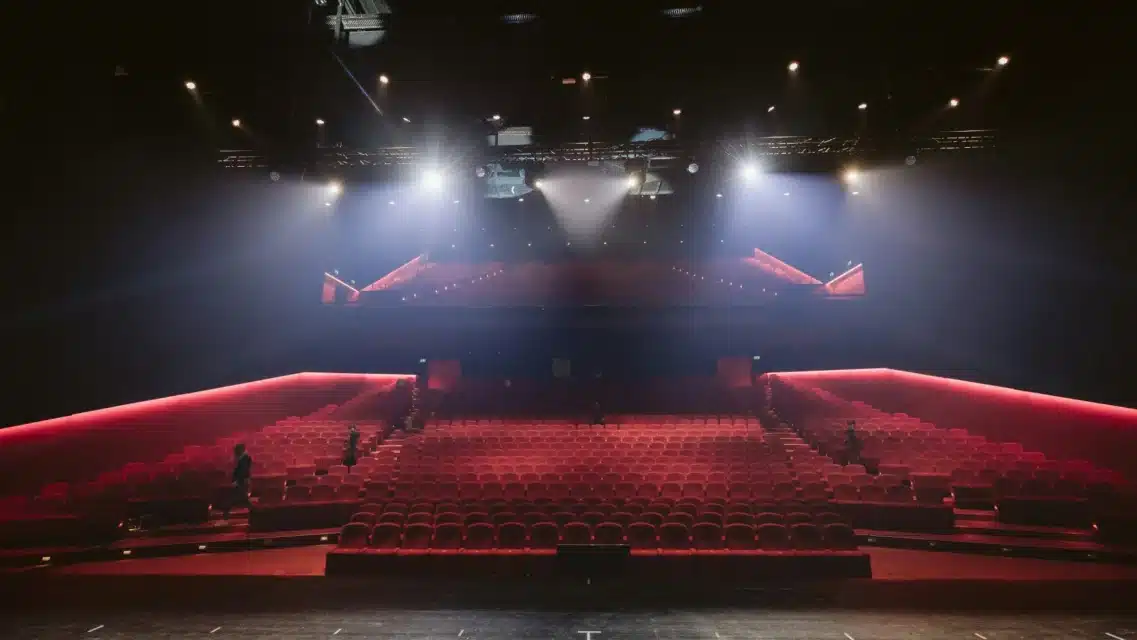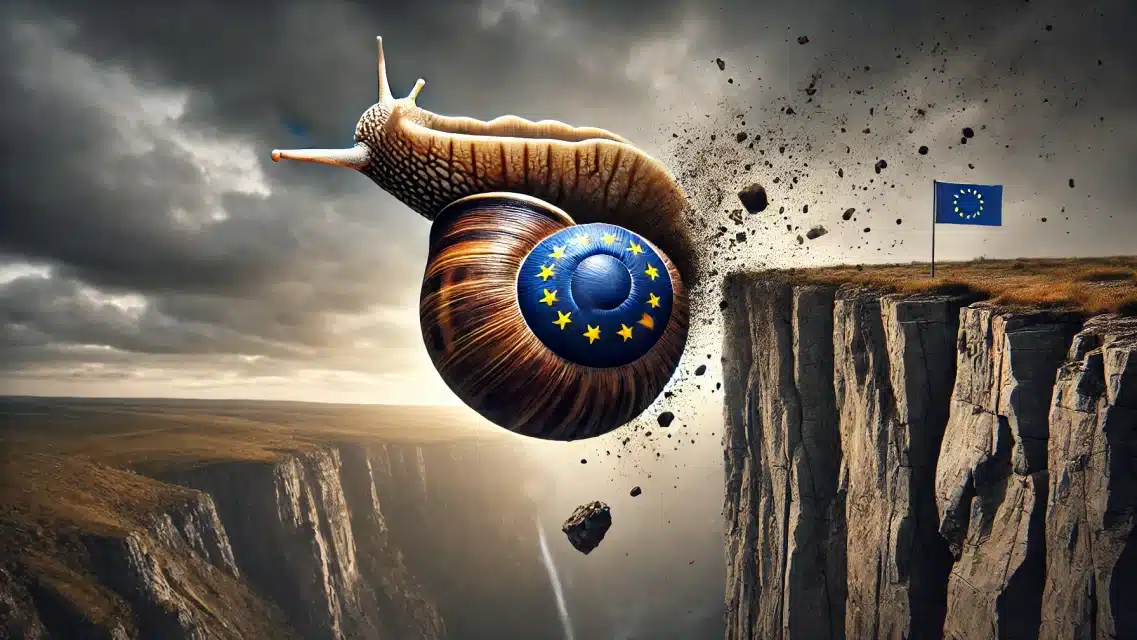Charisma built the stage—but only intelligence can build the future
Imagine the year is 1983. Harold Geneen, former CEO of ITT, stands before a graduating class of MBA students. This never happened—but if it had, I imagine he would have said nothing about passion. Nothing about dreams. He would have spoken of clarity—of numbers, systems, outcomes. “Leadership,” I hear him say, “is practised not so much in words as in attitude and in actions.” He was a man who took a modest telecommunications firm and turned it into a multinational empire. People called him ruthless. Cold. Calculating. What they didn’t call him—but should have—was brilliant.
Somewhere between then and now, we lost that definition.
Leadership became soft. Not in spirit, but in intellect. We started mistaking confidence for competence. A loud voice became more important than a sound mind. We wanted leaders who made us feel safe, not leaders who were sane. In a world where optics became currency, thinking took a back seat. The sharp edges of reason were replaced by the cushion of relatability.
But charisma is not a substitute for thought. And we’re starting to see the cost of forgetting that.
Smart leadership isn’t elitist. It isn’t detached. It isn’t ivory tower abstraction. It’s the ability to think through complexity and act with clarity when the room is full of noise. It’s the capacity to resist the applause of the moment for the sake of the consequences tomorrow. But to say this today—to insist that leaders must actually be smart—is to risk being called out of touch.
Why?
Because intelligence makes people uncomfortable. Not the performative kind—the real kind. The kind that questions assumptions, that tells the room what it doesn’t want to hear, that moves beyond charm into competence. It’s easier to follow someone who looks the part. Harder to trust someone who quietly knows what they’re doing.
But trust, real trust, isn’t born in the spotlight. It’s built in the silence of good decisions.
You can see it in the way smart leaders operate. They don’t panic. They process. They aren’t loud, but they’re never vague. They ask better questions. They demand better answers. They don’t need to be told what to think because they’ve already thought five steps ahead. That’s not arrogance. That’s responsibility.
There’s this belief that intellect somehow alienates. That people want to be led by someone “like them.” But nobody wants to be operated on by a surgeon who’s “just like them.” Nobody wants a pilot who’s “relatable.” We want people in charge who are better. Sharper. Clearer. That’s not an insult to the rest of us—it’s the whole point of leadership.
And yet, we celebrate the opposite. We re-elect the simplest message. We promote the most accessible narrative. We reward clarity of tone over clarity of thought. And in doing so, we flatten the very thing that keeps societies from sleepwalking off a cliff: intelligent dissent.
It wasn’t always like this.
Marcus Aurelius, the philosopher-king of Rome, kept a journal not of his triumphs, but of his thoughts. His Meditations are still read nearly two millennia later—not because of their political strategies, but because of the mind behind them. Aurelius was not popular in the modern sense. He did not tweet, smile, or sell. He thought. He governed an empire not with emotion, but with reason sharpened by introspection.
Abraham Lincoln, too, was not charismatic in the way we define it today. He was melancholic. Quiet. Often doubted. But in the crucible of civil war, he did not speak to the crowd’s feelings—he appealed to their reason. The Gettysburg Address is revered because of its structure, its brevity, its clarity. It is not a poem of fire—it is a blueprint of purpose. Lincoln read Euclid for pleasure. He believed that politics was geometry: traceable, principled, eternal.
Or take Lee Kuan Yew, the architect of modern Singapore. A small island with no natural resources, no deep history of independence, no easy allies. And yet, through rigorous governance, long-term planning, and a mind sharp enough to resist the ideological fashions of the West and East alike, he built a thriving metropolis. He did not care to be loved. He cared to be right. And he was.
These were leaders whose greatness stemmed not from spectacle but from their refusal to substitute sentiment for sense. Their loyalty to thought was not fashionable—but it was enduring.
Leadership without intellect is not leadership. It’s theatre.
And theatre, though entertaining, does not scale. It does not strategise. It does not solve. The real world—of markets, war, medicine, climate, policy—does not care how you feel. It doesn’t flinch for charisma. It yields only to logic, data, design. The man who smiles while making bad decisions still leads his people into a ditch.
That ditch is where we are headed if we continue to reward the feel of leadership over the fact of it.
Let’s pause for a moment and consider how we got here. In the age of digital dopamine, leaders are no longer judged by the future they build but by the seconds of attention they win. A CEO gets more press for a viral quote than a solid quarter. A candidate gains more traction from a misstep gone viral than a plan read deeply. This is not an accident. It is an algorithm. And algorithms are indifferent to wisdom.
But reality isn’t.
Reality is a harsh scorekeeper. The debt crisis, acceleration of intelligence augmentation, climate instability, the biology revolution, the rise of spatial computing, and the collapse of linear economics—these are not problems that can be solved by likability. They demand leadership with teeth. With backbone. With mental stamina. They demand a civilisation not inherited but designed. They demand a species that can think forwards, not feel backwards.
They demand leadership that can think.
The man who lets a leader prescribe his course is a wreck being towed to the scrap heap. Harsh? Yes. But accurate. Because the man who cannot think for himself will always seek a leader to do it for him. And the man who seeks a leader without intellect is not looking for direction. He is looking for a father. A saviour. A scapegoat.
This infantilises society.
It tells the young that thought is optional. That flash is more important than depth. That TikTok wisdom is equivalent to statecraft. It’s a dangerous delusion. Because when the music stops, someone still has to fix the infrastructure. Someone still has to negotiate with reality.
So yes—leadership must be smart. Not just educated. Not just informed. Not just clever. Smart in the deep sense: independently thinking, unsentimentally rational, unflinchingly principled.
We do not need more leaders who feel our pain. We need those who can solve the problem. We do not need more who mirror our confusion. We need those who can see through it.
We are not in a crisis of courage. We are in a crisis of competence. And the only cure is a return to the standard of the thinking leader.
Not the popular one.
Not the relatable one.
But the right one.
History will not be kind to the leaders who chased applause while the world burned. But it will remember those who, in the middle of chaos, dared to think clearly.
Because in the end, leadership is not about being liked.
It is about being right.
And being right takes thought.
But if we are to ask for smarter leadership, we must be ready to recognise it when it shows up—because it often arrives quietly, without fireworks or a press tour.
Angela Merkel is a good example (or at least was). She wasn’t magnetic. She didn’t command the room with charm. Yet, through successive crises—from the Eurozone collapse to the refugee influx—she stood calm, rational, sometimes maddeningly so. Merkel held a PhD in quantum chemistry. She thought in structures. She governed not with ideology, but with methodology. And while critics often demanded more emotion, what history may thank her for is the absence of panic. In a continent unravelled by populism and spectacle, she was the antithesis of the showman. She was a technician of the real.
Or look to Satya Nadella, who took the reins of a stagnating Microsoft. What did he do? He didn't yell. He listened. He read. He rebuilt the culture from the inside out. He focused not on grandstanding, but on systems—shifting the company from ego-driven empire building to a cloud-first, design-smart, interoperability-focused architecture. Under his leadership, Microsoft didn’t just make money. It began to think again. In a sea of Silicon Valley theatre, Nadella quietly reminded the world what product-focused, mind-led leadership could look like.
But it’s not just individuals. It’s the very notion of civilisation that now needs redesigning. We are no longer stewards of the old problems—borders, oil, treaties. We are now architects of entirely new realities. Synthetic biology allows us to code life. Artificial intelligence augments the very organ that made civilisation possible in the first place. Climate is no longer a debate—it is a client. It demands a new economic logic, a new social contract, a new planetary intelligence.
The era of managing what exists is over.
We must now invent what does not.
This is not about utopia. It is about engineering. The economy of the next fifty years will not be fuelled by consumption alone—it will be built upon computation, biology, autonomy, and planetary infrastructure. It will be defined not by GDP but by resilience, sustainability, and thought density.
To govern this, we cannot rely on instincts or impressions.
We need leaders who can read protein maps as fluently as they read polling data. Leaders who can model climate patterns and social movements in the same breath. Leaders who can architect futures—not because they believe in destiny, but because they believe in design.
As James Lovelock once warned, “We have grown in numbers and consequence so much that we can no longer just muddle through.” Muddling, improvising, pretending—it won’t be enough. The world is accelerating too fast for mediocrity to be survivable.
Civilisation is no longer a legacy—it is a lab.
And in this lab, the experiment is us.
We need a new ethos—one that values cognitive stamina over soundbites. One that holds clear thinking as sacred. One that teaches children that rigour is not elitism, that intelligence is not detachment, and that the future is not a mood board—it is a system to be built.
The smart leader of tomorrow will not merely debate taxes or trade. They will mediate between synthetic life and natural law. They will have to wrestle with dilemmas no philosopher imagined and make decisions no machine alone can answer. They will not only ask, “What is popular?” but “What is true?” and “What is possible?”
And that kind of leader must start being shaped now.
Not just in institutions, but in the minds of everyone who votes, builds, invests, teaches, writes, and codes. Because a society that cannot recognise intelligence cannot choose it. And a civilisation that does not choose intelligence cannot survive the age of consequence.
Let us remember: the challenges ahead are not problems to be managed. They are invitations to evolve. They are tests of our design fluency. They will not be won by charisma. They will not be solved by luck.
They will be earned.
Earned by thought.
Earned by leadership.
The kind of leadership that does not chase applause but clarity. That does not traffic in fear, but in foresight. That does not echo the masses, but shapes the map.
Because at the edge of history, where acceleration is destiny and entropy is price, we are not passengers.
We are architects.
And architecture, real architecture, begins with intelligence.



